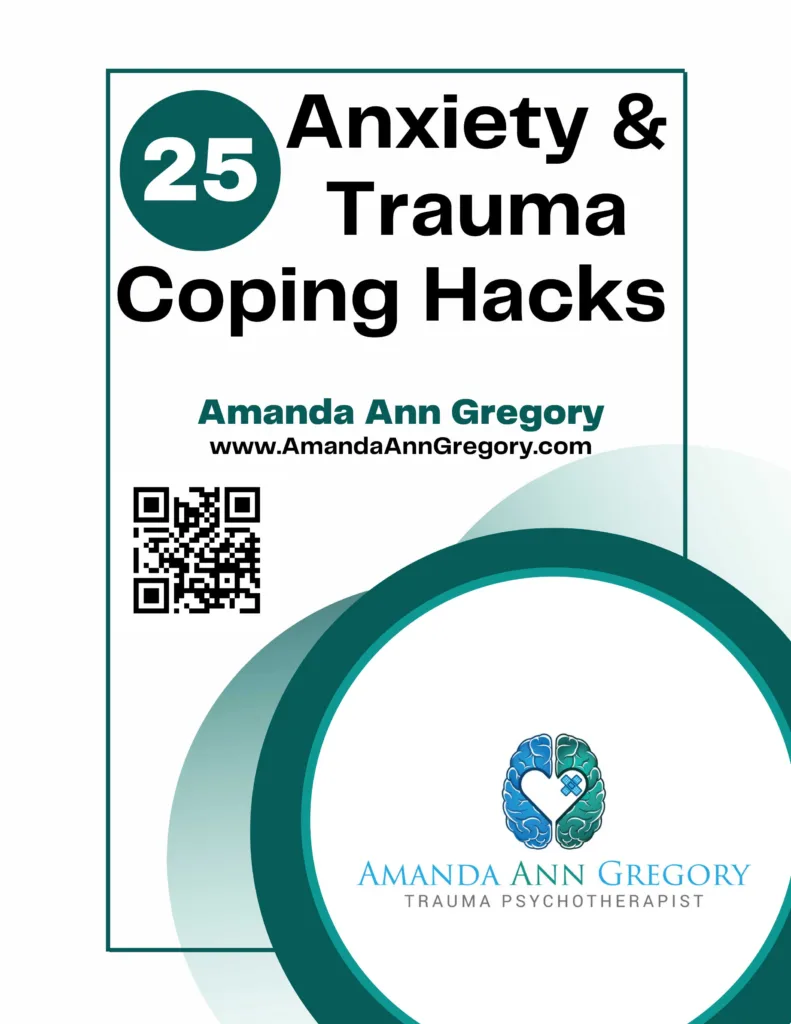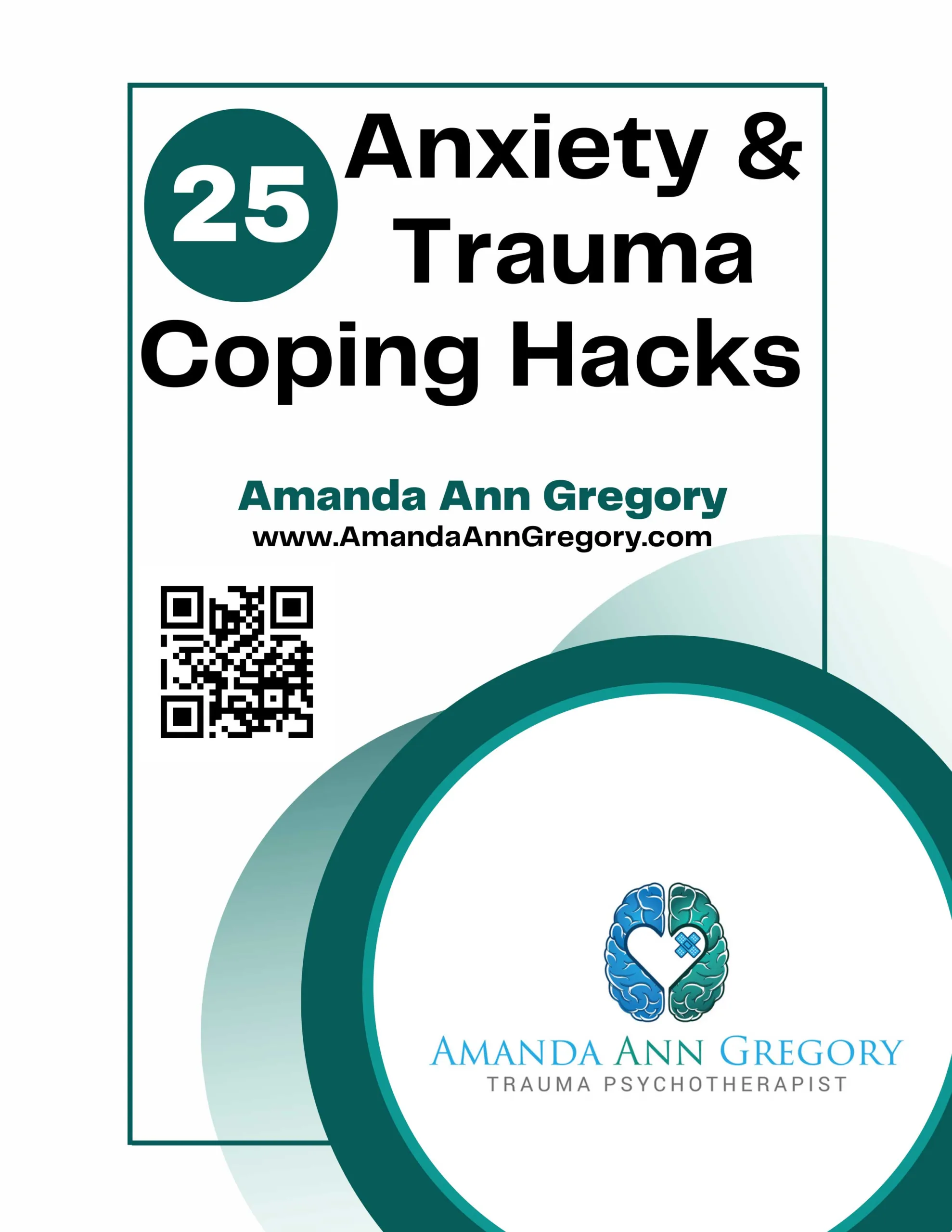You’ve tried to forgive, but you can’t. What should you do? Instead of simply trying harder, consider identifying and addressing your obstacles to forgiving.
While researching for my book, You Don’t Need to Forgive, I discovered six common reasons people struggle to forgive.
- You Don’t Feel Safe
Safety precedes forgiveness. You must feel safe enough to forgive before you can forgive. Your brain is wired to prioritize your survival over your ability to thrive, and forgiveness is a thriving experience. Therefore, achieving forgiveness can be impossible if you don’t feel physically or emotionally safe. Furthermore, focusing on forgiveness before you feel safe can be harmful, making you vulnerable to repeated offenses.
If you do not feel safe, consider reestablishing safety before pursuing forgiveness. You might need to establish firmer boundaries with your offender, engage in emotional or physical distancing from them, or involve members of your support system. Once safety is reestablished, your brain can shift from surviving to thriving, and forgiveness might be more obtainable.
2. You’re Being Pressured to Forgive
Are people pressuring, forcing, or strongly encouraging you to forgive? They may (or may not) have good intentions, but their efforts will likely be in vain. Pressuring people to forgive rarely leads to genuine forgiveness and can even delay or prevent it from occurring.
Instead of submitting to pressure from others, embrace that the decision to forgive is yours and yours alone. It’s not up to a psychologist, a social media influencer, a friend, a family member, or a therapist. Only you have the authority to decide if you want to forgive. If you don’t want to forgive, that’s OK. It’s your decision.
3. You’re Pressuring Yourself to Forgive
Forcing yourself to forgive can have just as little success as receiving pressure from others. Those who force themselves to forgive often struggle to experience genuine forgiveness. Trying to push yourself to forgive when you’re not ready can lead to feelings of shame, making forgiveness even harder to achieve.
Instead of pressuring yourself to forgive, try accepting where you are now and see where that leads. You can start by permitting yourself to feel emotions related to your offender and the harm they caused or contributed to. Try embracing the process, not the outcome of forgiveness. You might be surprised by what you discover.
4. You’re Experiencing Shame
Shame obstructs forgiveness. You must have some level of self-worth to forgive. If you don’t, genuine forgiveness can be difficult and, at times, impossible. Forgiveness requires the ability to empathize with your offender – to see things from their perspective. To do this, you need to recognize and accept your value. Shame hinders the ability to embrace your worth. Therefore, you will be unable to see your offender’s worth and unable to forgive them.
Focusing on forgiveness when you are blocked by shame can exaggerate your shame. Consider addressing your shame and improving your self-worth before pursuing forgiveness. You can identify and challenge your negative core beliefs, engage in trauma recovery, or address any factors that may have caused or contributed to your shame.
5. You Haven’t Embraced Your Anger
Forgiveness is not a method of bypassing or avoiding anger. You need to welcome, feel, and accept your anger before you can forgive. This might be difficult to do as we live in an anger-phobic society, where people are afraid of your anger as well as their own. However, anger is not good or bad or right or wrong; it’s an emotion that is no better or worse than any other emotion and it has a vital role in the forgiveness process.
Instead of trying to forgive to calm your anger, welcome it. Allow yourself to feel angry for as long as you need. Engage in activities designed to help you experience and express your anger. Embracing your anger may help you process and integrate it, increasing your chances of being able to forgive.
6. You Don’t Need to Forgive
Forgiveness is not a panacea. No research indicates that forgiveness benefits everyone in every circumstance. Unfortunately, many believe forgiveness is the gold standard of mental health, and they unconditionally pressure themselves and others to forgive, which rarely leads to genuine forgiveness.
You may not need to forgive your offender. If you don’t forgive, will you live with anger and resentment? You might not. Many who have not forgiven do not feel angry or resentful toward their offender. They may not like or love their offender. They may feel little or no empathy for them. And yet, they feel at peace.
You might need to forgive, or you may not. But, if you’d like to try to forgive but cannot consider reestablishing your safety, not giving in to pressure from others or yourself, addressing your shame, embracing your anger, and accepting that you may not need to forgive.
Purchase my book, You Don’t Need to Forgive

Sign up to get your Free eBook: 25 Anxiety & Trauma Coping Hacks

Hire me to speak at your event! Contact Me






This is so informative. I never thought to use the revenge fantasies as a way to finally let go of the anger and the guilt that the revenge thoughts
Thank you for posting ☺️
I’m so glad I found your site. I have a client who was repeatedly (unknown to her) recorded by her brother in the shower and she can’t forgive him. She’s being pressured to do by all of her family. She feels guilty because she “just can’t.” I’ve been encouraging her to feel just as she does and not be pressured. Didn’t know if I was going in the right direction, but your articles helped immensely. Many thanks.